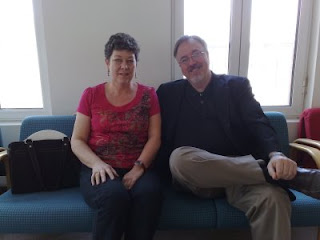Teaching Twitter could become a class act - web - Technology - theage.com.au
Computer Software in Plain English
A new Common Craft video from Lee LeFever
YouTube - it's all about .. ICT in Education Conference 2009
ictQATAR and CNA-Q to Host Conference on ICT in Education
Interactive Conference to Address Ways Technology Can Improve Learning
Featuring Gary Stager, Sylvia Martinez, Julie Lindsay, and other presenters and participants at the event.
e-Education ICT in Education 2009
The Supreme Council for Information and Communication Technology (ictQATAR) and College of the North Atlantic-Qatar (CNA-Q) hosted the second annual conference on e-education, "ICT Conference 2009: Exploring ICT in Education" on March 7 and 8, 2009 at CNA-Q's Duhail Campus.Netvibes, protopage, pageflakes... which one is the most effective ? » Benchmarkr.com
Interesting tool that compares like-products.
NSTA :: Bans Stifle Social Media's Potential
Are you LinkedIn? Do your students Tweet during a field trip? If you’re like many NSTA members, the answer is “yes” with a caveat: Not in school.
Excellent article featuring James gates, includes brief info about Flat Classroom and use of social media toolsEuroCreator.com | EuroCreator is an educational initiative designed to encourage students
Welcome to Euro Creator, your gateway to a year of Creativity and Innovation. Euro Creator is a safe, moderated website for pupils and their teachers.
Web 2.0 Tools and Applications - Go2web20
Over 57 'pages' of Web 2.0 tools!
Language teachers at italki - professional teachers, language tutors
Learn a language with a tutor through iTalki
This blog is a space for reflections on research relating to young children's engagement with popular culture, media and new technologies. The focus is on children aged from birth to eight, although not exclusively.
Flat Classroom Mini-Conference
Announcement on the ASB website of our Flat Classroom Workshop/mini-Conference to be held at ASB Unplugged in Mumbai, February 2010
When you play a game at Gwap, you aren't just having fun. You're helping the world become a better place. By playing our games, you're training computers to solve problems for humans all over the world.
'Ideas to Inspire' is a collection of collaborative presentations, which offer a large number of ideas for engaging lesson activities. They are the result of the collaboration of teachers from all around the world.
YouTube - 21CLearners MasterTeacher
David Warlick and teachers in Qatar gather to talk about being a Master Learner and teacher in the 21st Century.
More info at http://elearning.qataracade...Twitter for Teachers: Home - Twitter for Teachers
How would you like to co-author an e-book to teach educators about Twitter?
For information on how you can participate in this project, visit the How to Contribute page.Is this the dumbest generation? - grownupdigital
Don Tapscott outlines many of the inaccurate, yet unfortunately popular, stereotypes of the Net Generation in Grown Up Digital. What is your reaction to the negative characterization of youth today?
Over 200 teachers and students from the Net Generation Education (Flat Classroom) project have responded to this so far.
Posted from Diigo. The rest of my favorite links are here.




